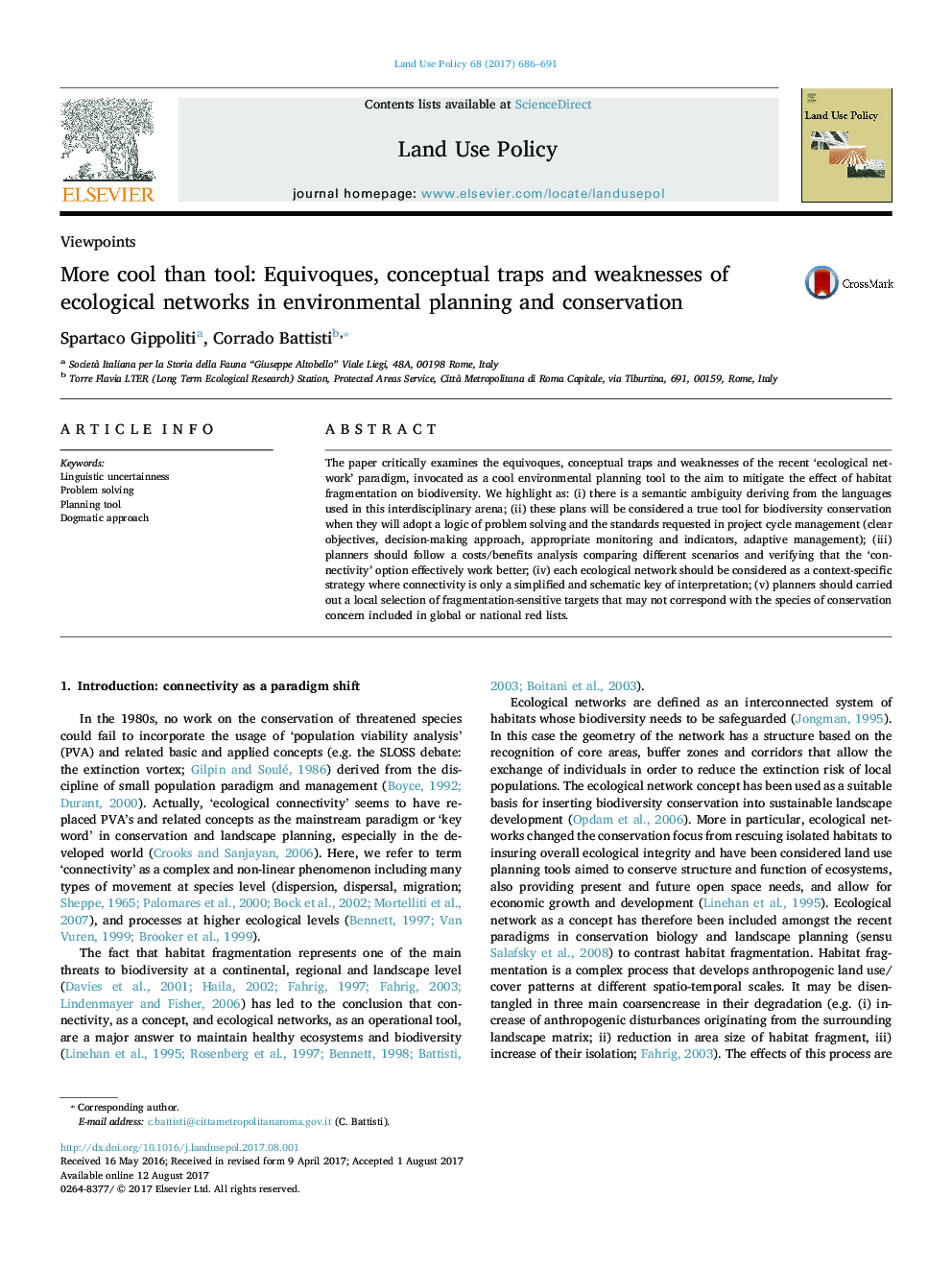| کد مقاله | کد نشریه | سال انتشار | مقاله انگلیسی | نسخه تمام متن |
|---|---|---|---|---|
| 6460623 | 1421815 | 2017 | 6 صفحه PDF | دانلود رایگان |
- In ecological network planning there is an interdisciplinary semantic ambiguity.
- Ecological networks lack in the use problem solving logic, decision-making approach, costs/benefits evaluation, monitoring to test effectiveness.
- There is an over-emphasis of connectivity as a concept and an under-evaluation of more pragmatic local-based measures.
- Fragmentation-sensitive species should be selected to monitor effectiveness of ecological network plans.
The paper critically examines the equivoques, conceptual traps and weaknesses of the recent 'ecological network' paradigm, invocated as a cool environmental planning tool to the aim to mitigate the effect of habitat fragmentation on biodiversity. We highlight as: (i) there is a semantic ambiguity deriving from the languages used in this interdisciplinary arena; (ii) these plans will be considered a true tool for biodiversity conservation when they will adopt a logic of problem solving and the standards requested in project cycle management (clear objectives, decision-making approach, appropriate monitoring and indicators, adaptive management); (iii) planners should follow a costs/benefits analysis comparing different scenarios and verifying that the 'connectivity' option effectively work better; (iv) each ecological network should be considered as a context-specific strategy where connectivity is only a simplified and schematic key of interpretation; (v) planners should carried out a local selection of fragmentation-sensitive targets that may not correspond with the species of conservation concern included in global or national red lists.
Journal: Land Use Policy - Volume 68, November 2017, Pages 686-691
